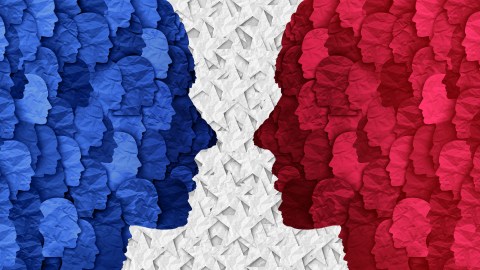Politics ruins everything, including your memory

- Human memory is a tricky thing. It is easily fooled or manipulated.
- A new study shows that political partisans are likelier to remember events that never happened, but only ones that make the other side look bad.
- False memories are linked to cognitive ability — or, rather, the lack thereof. They are also linked to narcissism and acceptance of "pseudo-profound bullshit."
Politics ruins your memory
The researchers carried out two surveys on two different groups of test subjects. Each survey began with a section on the subjects’ demographic, political, and psychological traits alongside a short cognitive ability test. The surveys then moved on to a series of vignettes describing events or policies that were either real, misattributed, or outright fabricated.
For example, a “misattributed” story described how Eric Holder (an official in the Obama administration) spoke with MSNBC about negative news coverage of the administration. This event didn’t happen, but a similar one did: Bill Barr (a Trump administration official) met with Fox News president Rupert Murdoch. A “fabricated” story described how the Trump administration allowed waste to be dumped into the Great Lakes. Each survey included 18 stories like these.
The authors’ most striking finding was that, while most respondents (correctly) did not recall events that did not occur, 30% of them did — and what they misremembered was suspiciously aligned with their political affiliation. For instance, Democratic test subjects were more likely to recall (incorrectly) that the Trump administration intentionally polluted the Great Lakes, while Republicans were more likely to recall (incorrectly) that Trump signed a particular G.I. bill (which was actually signed by Obama).
Why do we have false memories?
What causes false memories? By sifting through the data they collected, the authors found that false memories were linked to cognitive ability — or, rather, the lack thereof. Similarly, being prone to perceive “pseudo-profound bullshit” as deeply meaningful also predicted acceptance of false stories. Narcissism also plays a role; confidence and nonsense often go hand-in-hand.
Furthermore, the researchers found that partisanship influenced the recollection of false memories. Members of one political party were more likely to “remember” events that never happened, provided that the event made their party look good and the other party look bad.





